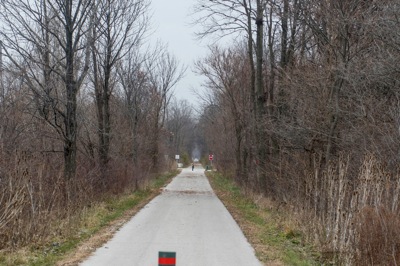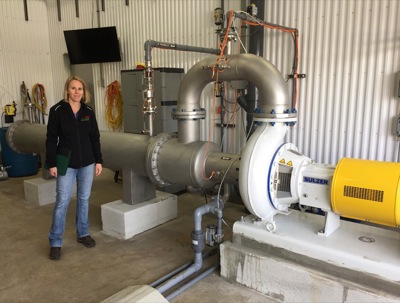Friday, December 9th, 2016
Ag board wants feds to be able to levy fines
By Nancy Allen
Mercer County Soil and Water Conservation District board members want federal officials to have the power to fine producers who misuse features built with conservation funds.
Board members on Thursday authorized submitting a resolution to the Ohio Federation of Soil and Water Conservation Districts asking that the USDA's Natural Conservation Service be permitted to fine and collect refunds from producers who use structures and buildings installed using federal funds for any purpose other than the one for which they were intended.
The resolution will be sent to the state board of directors for a possible vote at its February meeting. If the federation approves, the resolution could be debated and become part of federal farm bill laws, said Nikki Hawk, district administrator/education specialist for the Mercer SWCD.
Hawk said she plans to ask SWCD members from Darke and Shelby counties to co-sponsor the resolution.
Ryan Kemper, NRCS district conservationist for Mercer County, said he has received complaints about producers who have received federal funds to construct dry-stack manure storage buildings and then later used them to store farm equipment or house livestock.
"There's been guys who build a dry-stack building (using federal conservation funds) for some years and then pack it full of steers and then come back to NRCS for (more funds) for another dry stack," Kemper said. "New language (in the resolution) would say the farmer needs to maintain the use of the structure for the life of the practice instead of the life of the contract."
"The concern is that people could use the building to store farm equipment in or whatever and then pile their manure outside," district technician Matt Heckler said. "That can cause a resource concern."
Heckler said the resolution would cover any feature installed using funds from the USDA/NRCS's Environmental Quality Incentives Program, including feed lot covers and holding ponds. Locally officials have received the most complaints about misuse of dry-stack manure storage buildings, Heckler added. EQIP funds help farmers pay the cost of installing practices designed to stem runoff from manure that can pollute water bodies.
Heckler noted that the Farm Service Agency has a similar mechanism that allows the agency to issue fines for infractions.
"They (FSA has) the same thing for filter strips and buffers," he said. "If you don't use the practice for its intended purpose, they charge you."
NRCS regulations set a dry-stack manure storage building's life at 15 years. Contracts for such structures range from three-10 years, Kemper said.
Board members also authorized Hawk and Heckler to attend the Soil Health Initiative Partnership conference Jan. 19-20 in Des Moines, Iowa. There is no charge for the event. Local producers wanting to join the partnership and have soil studies on their farmland for five years also will attend, Hawk said.
SWCD officials learned about the partnership through Hans Kok, a Soil Health Initiative Partnership field manager, who encourages farmers to participate in soil studies.
"It's really open to the producer which practices he wants to try out," Hawk said. "The SWCD's role is to help hold a field event once a year to discuss the project to get others interested and do a project too."
Board members also were appointed to various positions, which they will begin in January. They are Dale Albers, chairman; Theresa Howick, vice chairman; Andy Schwieterman, secretary; Bob Maurer, fiscal agent; and Nick Renner, public relations officer.
Board members on Thursday also reviewed two invalid allegations of improper manure application. The first was reported Nov. 28 and the second on Dec. 2. Both sites are in the Wabash River Watershed.
In the Nov. 28 report, pen pack manure had been applied to a field on the northwest corner of the intersection of state routes 29 and 49. Slurry manure also had been applied to sections of the field. Though not required, the producer worked the manure into the ground near an open ditch when asked to by SWCD officials. No runoff was reported.
In the Dec. 2 report, liquid dairy manure had been surface applied to a corn silage field on the south side of Huwer Road west of U.S. 127. Though not required, the producer worked the manure into the field when asked to by SWCD officials. Officials could find no runoff from the field.




